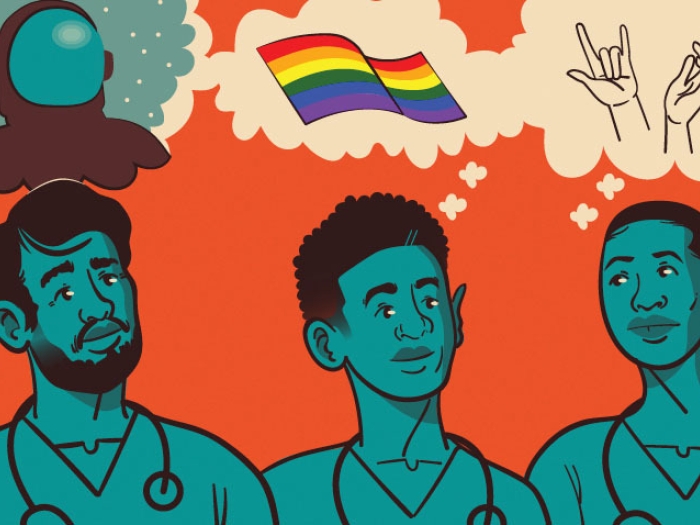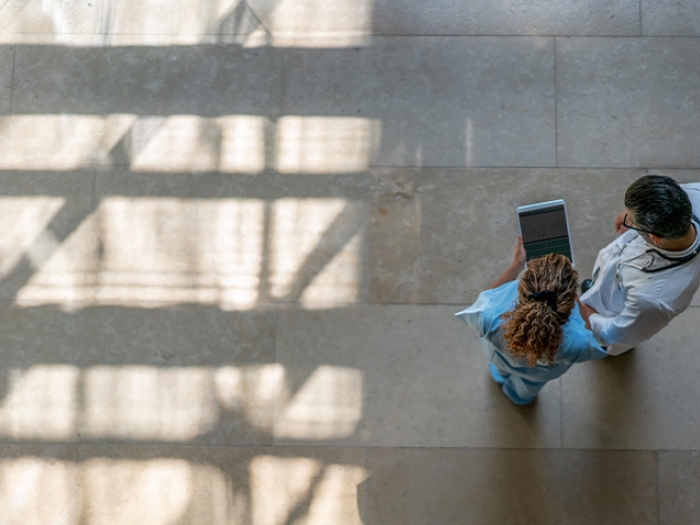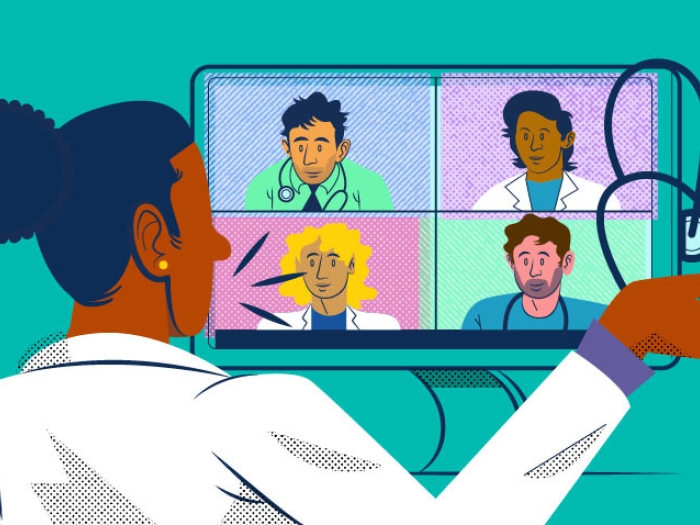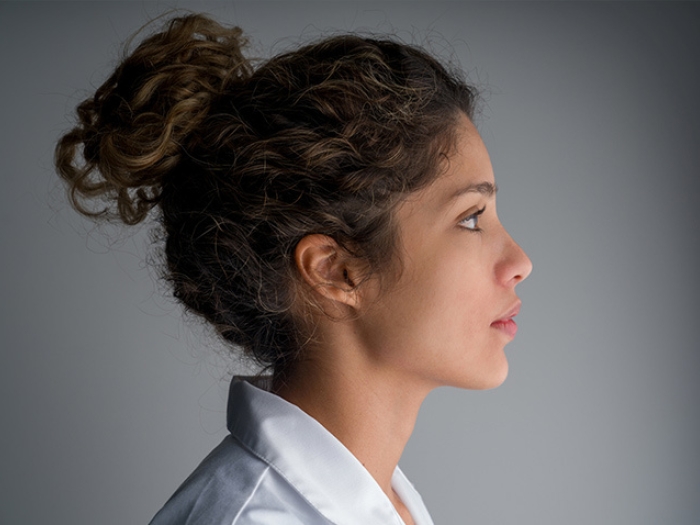The ‘I Am an Innovator’ video series allows physicians, scientists, faculty and students to openly communicate and collaborate.
5:00 AM
Author |
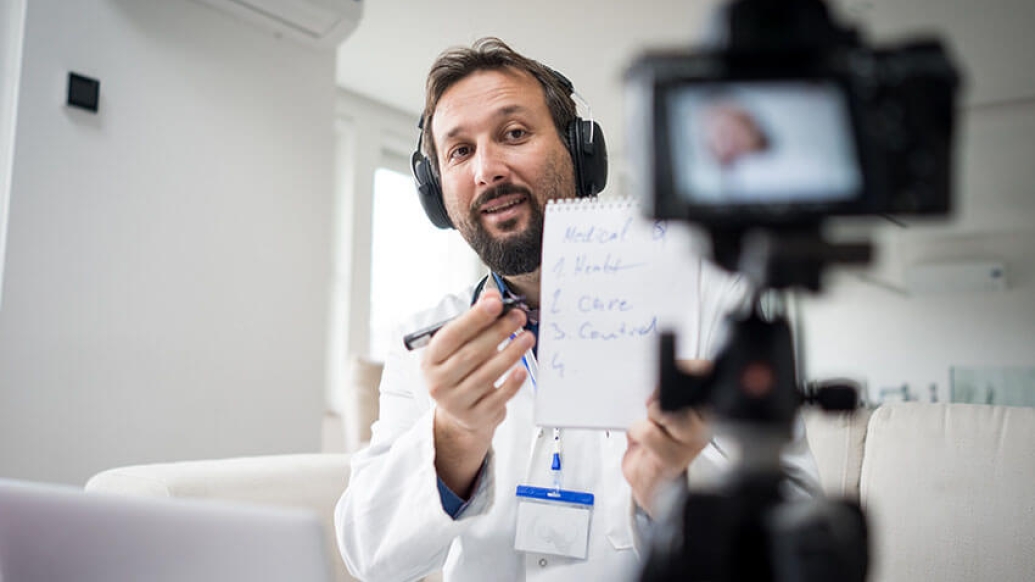
Michigan Medicine's RISE, which stands for research, innovation, scholarship and education, was created to build a foundation for a unique collaborative where physicians, scientists, staff and students are encouraged to share best practices involving health sciences education.
"RISE was developed to help cultivate a learning community that engages our educators who are committed to leveraging science, health and health care delivery," said Paula Thompson, Ph.D., who serves as RISE's administrative director. "This platform connects people with varying perspectives and ideas in hopes of creating a thriving community based around one goal: advancing health sciences education."
The collaborative's community building activities consist of virtual discussion groups, podcasts, fellowships and mini grants. And to expand upon these options, Thompson teamed up with Rajesh Mangrulkar, M.D., who serves as the organization's executive director, and other members to develop the RISE 'I Am an Innovator' video series.
"This video platform provides health science educators with an opportunity to share their innovative ideas and discoveries," said Thompson. "The series also provides our health science education community with a way to learn from others. Mainly, it is designed to allow for cross-collaboration regarding educational happenings throughout Michigan Medicine."
When individuals tend to think of academic medicine, they usually envision presentations and traditional publications. But according to Mangrulkar, the 'I Am an Innovator' video series is designed to influence change when it comes to how innovators communicate their work.
"We wanted to find a way to leverage a non-traditional method of communication in the realm of academic medicine," he said. "This series brings people together by highlighting big ideas that may not necessarily receive a lot of attention otherwise."
MORE FROM THE LAB: Subscribe to our weekly newsletter
Thompson added that the RISE team wanted to create an effective tool for health science educators to learn about various initiatives and funding sources in a user-friendly and compelling way.
"When someone works on a video for this platform, it contributes to the overall reel of work that others can observe and subsequently, use to make parallels to their own work which may inspire future ideas and innovation," said Thompson. "We receive submissions from people with many different funding sources, so it's a nice mixture."
Before the pandemic, Thompson said that the RISE team was on a monthly cadence for creating and sharing video content and was receiving a lot of positive feedback.
"We quickly realized the value in what we were doing and knew that once things calmed down with COVID-19, we wanted to resume the series."
Since the first video was uploaded to the platform in October of 2019, the series has garnered nearly 2,500 views. And educators like Gurjit Sandhu, Ph.D., and Margaret Wolff, M.D., M.H.P.E., fully recognize its value.
"We have posted a link to the 'I Am an Innovator' page on our lab's website. Since then, several faculty members who I otherwise did not know had an interest in education, reached out to me and asked if we could meet about graduate medical education grants," said Sandhu. "It was very exciting to see this transpire in real time."
Wolff added that she, too, has observed a spark in interest when it comes to health science education since the platform was created.
"Several people have actually reached out to me directly, both from Michigan Medicine and other external institutions, stating that they are now considering the development of coaching programs for their own medical education programs since viewing our video(s)."
Mangrulkar noted that while there are a lot of silos when it comes to education, the connections that come from these collaborations with various disciplines and schools ultimately breeds creativity.
Like Podcasts? Add the Michigan Medicine News Break on iTunes or anywhere you listen to podcasts.
"When people share their own stories, it can be really impactful," he said. "And so much of what traditional academic medicine focuses on is what happens versus why it happens. Part of the beauty of these videos is that they tell their own stories. It's not always about sharing our brilliant successes. But instead, also talking about the ups and downs of serving as an educator. What works and what doesn't work. And if done the right way, this dialogue can lead to even more innovation."
The RISE team plans to continue exploring ways to leverage the video series and further cultivate collaboration within health science education.
"Our philosophy is simple. The more we promote the incredible things currently happening within the education space, the more awareness is out there," said Mangrukar. "This, in turn, allows our educators to build even more connections and nurture their own creativity."
Check out the 'I Am an Innovator' video series.

Explore a variety of healthcare news & stories by visiting the Health Lab home page for more articles.

Department of Communication at Michigan Medicine
Want top health & research news weekly? Sign up for Health Lab’s newsletters today!

